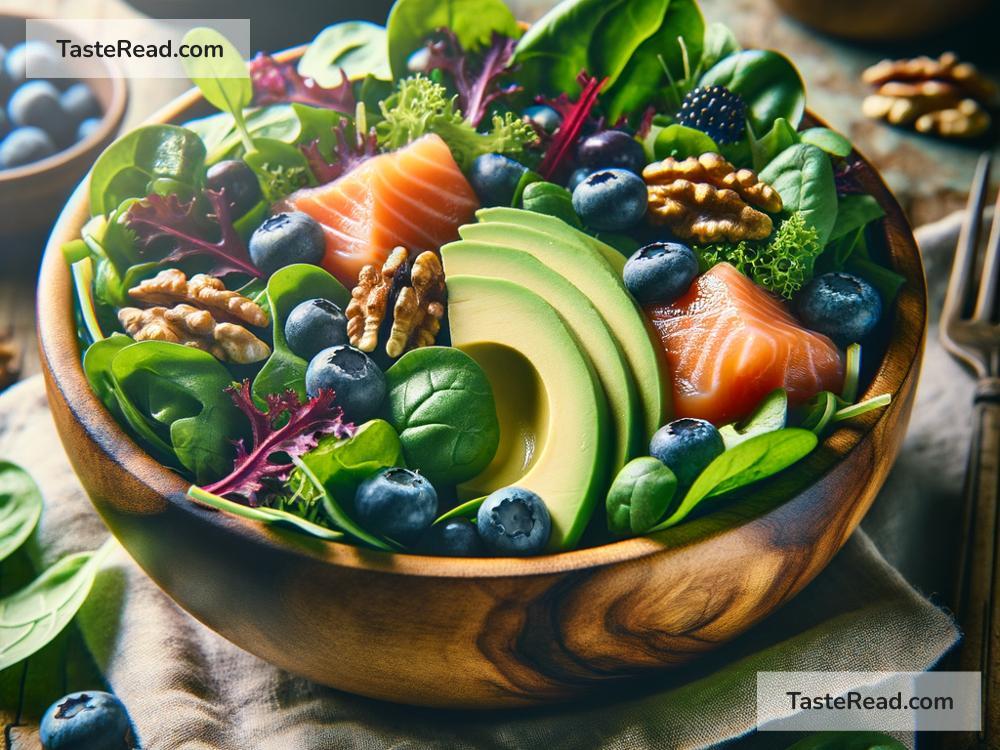Unlocking Leptin Sensitivity: Foods That Boost Your Body’s “Fullness Hormone”
Do you ever feel like your hunger signals are out of whack? Maybe you eat a full meal but still feel snacky an hour later, or you struggle with feeling satisfied even after eating a healthy portion. These struggles might be linked to a hormone called leptin.
Leptin is often called the “fullness hormone” or the “satiety hormone” because it helps regulate hunger and energy balance. Produced by fat cells, leptin communicates with your brain, signaling when you’ve eaten enough and can stop eating. When functioning properly, leptin helps you maintain a healthy weight. But when leptin sensitivity declines, your brain may not get the “stop-eating” signal, leading to overeating and weight gain.
The good news? Improving leptin sensitivity may be possible by making smart choices in your diet. What you eat plays a key role in how well your body processes leptin. Let’s explore foods that can boost leptin sensitivity and help your body rediscover balanced hunger signals.
What Causes Leptin Resistance?
Before diving into foods that can help, it’s important to understand leptin resistance. Just like insulin resistance in people with diabetes, leptin resistance means your body stops responding effectively to this hormone.
Several factors contribute to leptin resistance, including:
– Processed foods: Diets high in sugar and refined carbs can interfere with healthy hormone function.
– Chronic inflammation: Inflammation damages leptin pathways in the brain, disrupting its signals.
– Lack of sleep: Poor sleep habits play a role in hormone imbalances, including leptin resistance.
By addressing these factors through your food choices, you may improve leptin sensitivity and help your body better regulate hunger.
Foods That Improve Leptin Sensitivity
1. Healthy Fats
Healthy fats are essential for hormone function and can help reduce inflammation, which contributes to leptin resistance. Focus on incorporating sources of omega-3 fatty acids, as they’re known for their anti-inflammatory benefits.
Foods to try:
– Fatty fish, like salmon, mackerel, and sardines
– Flaxseeds and chia seeds
– Walnuts
– Extra virgin olive oil
By swapping unhealthy trans fats and processed oils for these nutrient-rich fats, you’ll support your brain’s ability to process leptin signals more effectively.
2. Anti-Inflammatory Foods
Chronic inflammation is one of the biggest culprits behind leptin resistance. Adding anti-inflammatory foods to your diet can reduce inflammation and improve hormone signaling.
Foods to try:
– Leafy greens like spinach, kale, and arugula
– Berries such as blueberries, strawberries, and raspberries
– Turmeric (don’t forget to pair it with black pepper for better absorption!)
– Ginger
Make it fun by tossing berries onto oatmeal, blending leafy greens into smoothies, or sipping a cup of turmeric tea.
3. Protein-Rich Foods
Protein not only keeps you full for longer but also supports hormone production and regulation, including leptin. Eating protein-rich foods helps stabilize blood sugar levels, making it easier for your body to process hunger signals.
Foods to try:
– Lean meats like chicken and turkey
– Eggs
– Plant-based options like lentils, chickpeas, and tofu
– Greek yogurt
Consider starting your day with a protein-packed breakfast like scrambled eggs or Greek yogurt loaded with nuts and seeds.
4. High-Fiber Foods
Fiber is essential for maintaining stable blood sugar levels and improving digestion. When your blood sugar is balanced, your body can better process leptin signals. Additionally, fiber keeps you feeling full longer, reducing the temptation to snack unnecessarily.
Foods to try:
– Whole grains like oats, quinoa, and brown rice
– Vegetables such as broccoli, sweet potatoes, and carrots
– Beans and legumes
– Fruits like apples, pears, and oranges
For a power-packed snack, grab an apple with almond butter or whip up a hearty lentil soup.
5. Zinc-Rich Foods
Zinc is a mineral that’s vital for immune health and hormone regulation. Studies have shown that zinc deficiency can contribute to leptin resistance, so eating zinc-rich foods is important for keeping your hunger hormones balanced.
Foods to try:
– Shellfish such as oysters, crab, and shrimp
– Pumpkin seeds
– Beef and poultry
– Spinach
Sprinkle pumpkin seeds over your salad or snack on roasted chickpeas to get a dose of zinc throughout your day.
What to Avoid
Just as certain foods improve leptin sensitivity, others may worsen it. Here’s what to limit in your diet:
- Sugary snacks: Excess sugar can cause blood sugar spikes and worsen leptin resistance.
- Refined carbs: White bread, pastries, and other processed carbs disrupt hunger hormones.
- Trans fats: Found in fried foods and packaged snacks, these fats promote inflammation.
By steering clear of these foods, you can prevent further damage to your leptin pathways.
Lifestyle Tips to Support Leptin Sensitivity
While food is a powerful tool, don’t forget that lifestyle habits also impact leptin sensitivity. Make sure to:
– Get enough sleep: Aim for 7-9 hours per night to stabilize hunger hormones.
– Exercise regularly: Movement helps your body use leptin more effectively.
– Manage stress: Chronic stress raises inflammation and disrupts hormone balance.
Combining healthy food choices with good sleep, movement, and stress management can create a comprehensive approach to improving leptin sensitivity.
Leptin sensitivity plays a key role in regulating hunger and maintaining a healthy weight. By focusing on nutrient-rich, anti-inflammatory foods, you give your body the tools it needs to process leptin signals properly. Commit to small, consistent changes in your diet and lifestyle, and over time, your “fullness hormone” will thank you.


